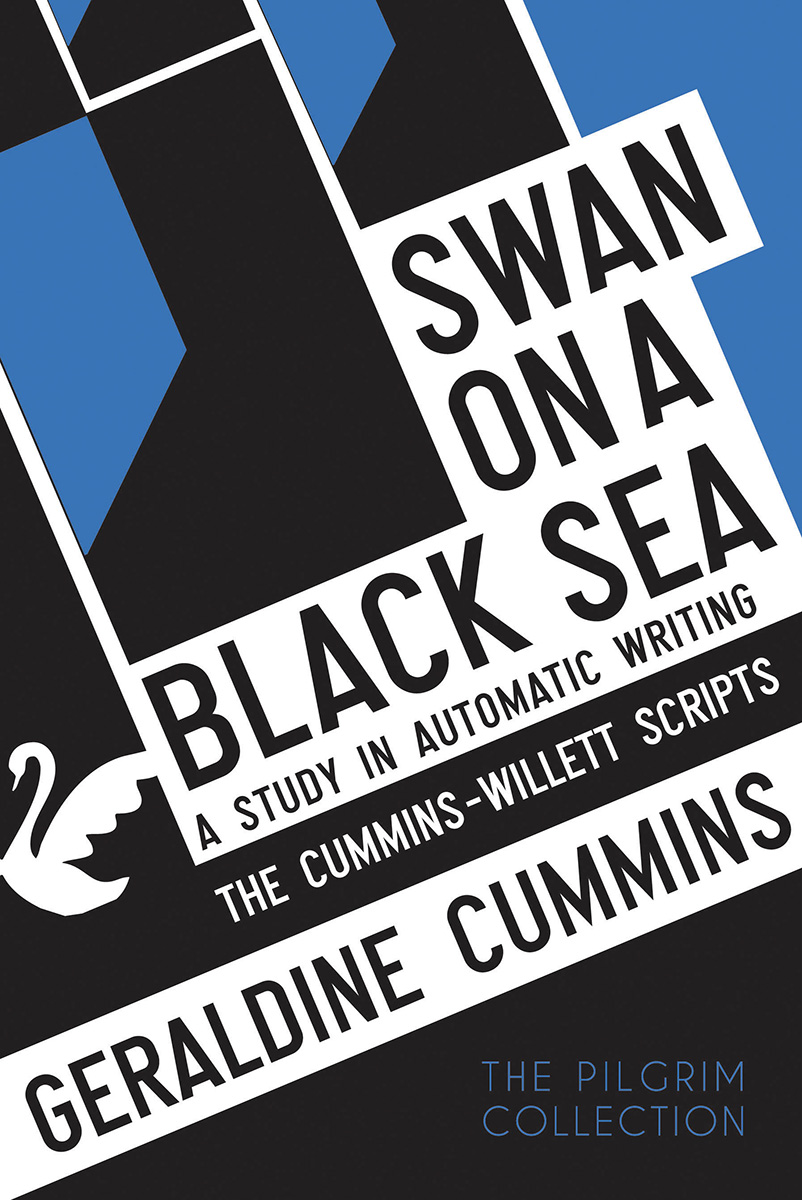Summary
Swan on a Black Sea is Geraldine Cummins’ final book which was first published in 1965. The book is an account – an afterlife communication, from the British suffragette and philanthropist, Winifred Margaret Coombe Tennant who passed away in 1956 and first communicated with Cummins in 1957. Coombe Tennant communicated through Cummins using automatic writing; the object being to let her sons know she was still very much alive in the spirit world. The communications are made up of 40 scripts which were communicated between 1957-1960.
Throughout her life Coombe Tennant was a talented medium but due to her professional and social standing, she choose to keep her gift a secret from all but a handful of friends, and anonymously she practiced her mediumship under the pseudonym, Mrs. Willet. Her sitters included Sir Oliver Lodge, the renowned British scientist who devoted much of his life to psychical research, and a select number of senior members of the Society for Psychical Research.
Relaying her experiences as a travel writer might, reporting back from a distant land, she describes her ability to travel back and forth in time. It’s as if her physical life is a film and she is able to “go into her film” at any time or place and examine her physical life – a life review or judgment some might conclude.
On October 29, 1958 (script 32) she addressed her skeptical son Henry who was still alive at the time and was finding it difficult to accept that his dead mother was communicating,
‘There is a dream sweetness about my present state or place.
Yet my environment is familiar and totally real. I live in an existence in form both in human etheric forms and surroundings such as in outline nature and man provide. Yet I can be of them and not of them. I am not wedded to them or welded into them. One’s mind can govern and alter conditions in a manner not possible on earth. That is, if one exerts oneself, makes an effort.
‘At present I am at home again in the long ago of Wales. You remember my break in life through your father’s death. You may recall how I went to live in London in a flat. All that period is not my present environment.
‘I am back again in my married life. It is different, though in appearance to my perceptions it is the same outer world of reason, order and sensible arrangements. But it is different, humanly speaking. I am much with Christopher, who is a darling, while your father pairs off with Daff. That is a new experience to me.
‘What is novel also is that I appear to be in a kind of kindergarten and in my working hours I relive in memory what earth time has snatched away from me. So in the study of memory I do not remain at Cadoxton. I enter the film of past events and make excursions into different times in my past earth life so as to assimilate it.
The scripts are essentially an afterlife memoir of Winifred Coombe Tennant; they provide a fascinating insight into her world beyond the grave and are essential reading for anyone interested in psychical research and life after death.

